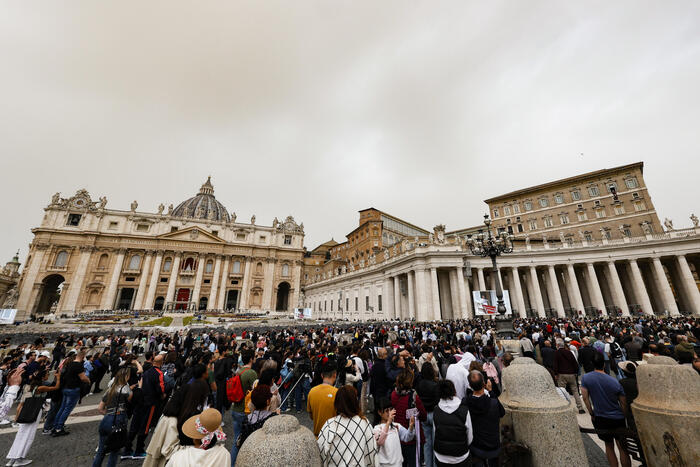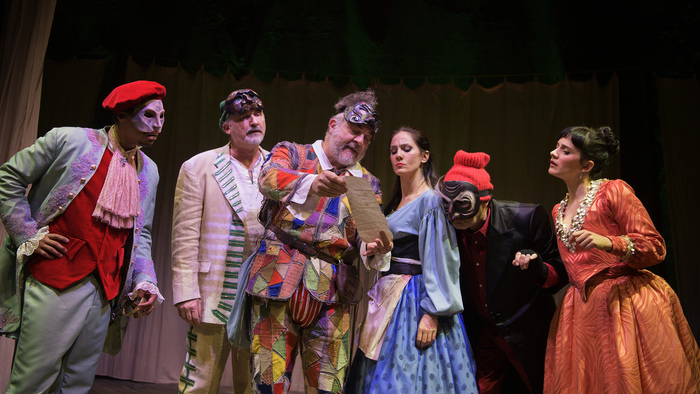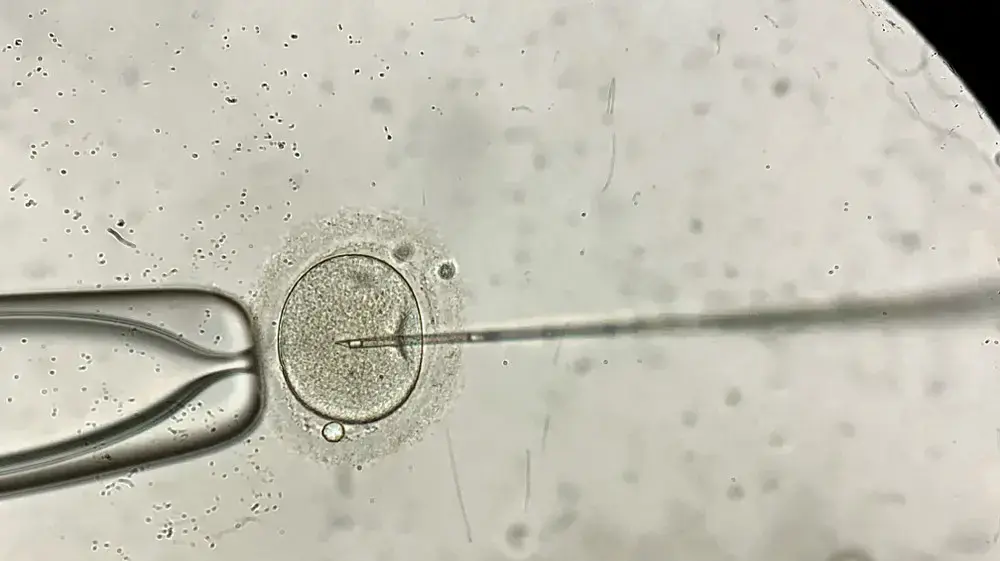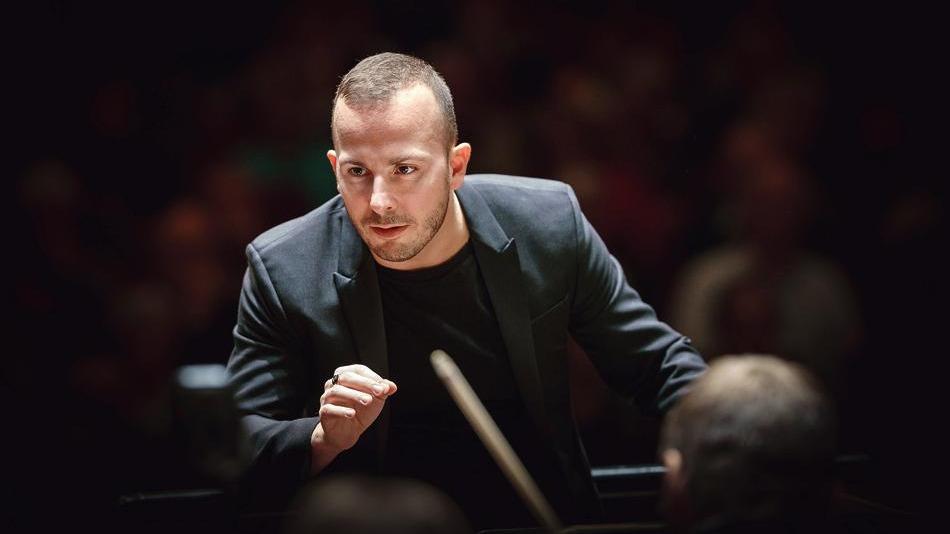Paloma: became a mother through the ROPA method, an in vitro fertilization treatment designed so that couples made up of women can be equally involved in motherhood, for which oocytes from one of them are fertilized with semen from a donor and the resulting embryo is transferred to the uterus of the other.
Eva: she has a biological son, another adopted and a third in foster care.
Rubén: trans man who froze his eggs before starting his gender change and managed to give birth last year.
Candela: she practices tribal upbringing within a group where all its members act as fathers and mothers.
Susana: she had an abortion in London when it was prohibited in Spain, once again in this country under the assumption of psychological damage, a last one under the protection of the 2010 law and now she is a mother.
Silvia:
two children born by assisted reproduction with eggs from another woman.
Pedro: father through a surrogate mother.
Besha Wear: Congolese immigrant, her daughter was born in Spain.
Laura: she is not a mother nor does she want to be.
More information
Argentine and British veterans of the Falklands reconcile in the theater
These nine people are real and so are their stories.
They are very different, but contrasted in the same story make up a fresco on the various forms that motherhood can take in the present.
Even more so when the protagonists themselves get on stage to tell them in the flesh.
They will do so starting Friday as supervening performers of the theatrical production
Lengua madre,
created by the Buenos Aires playwright and director Lola Arias, the same one who managed to bring Argentine and British veterans of the Falklands War face to face in the acclaimed show
Campo mina ,
which made it a world reference in documentary theater after its premiere at the Royal Court in London in 2016 and which could be seen in Spain in 2018.
If
Minefield
explored the emotional consequences of war conflicts,
Lengua madre
is a living treatise on how motherhood is currently practiced in different countries and therefore changes depending on where it is represented, since its protagonists are anonymous citizens selected after an investigation that Arias performs
on site
with the aim of reflecting as widely as possible the reality of each territory.
Last year the playwright did it in the Italian city of Bologna and this season the National Dramatic Center and the Teatre Lliure of Barcelona have joined forces to co-produce its Spanish version, which will be performed from March 11 to April 10 at the Valle theater -Inclán de Madrid and from April 22 to May 8 at the Lliure, after a process that began with fifty interviews with people with particular experiences, psychologists, sociologists, legislators, activists and experts on topics such as assisted reproduction and It continued with a workshop in which twenty selected people participated, from which the nine protagonists of the work finally came out.
Another moment from the rehearsal of 'Mother tongue'. LUZ SORIA (CDN)
The result is a dictionary on human reproduction in these times in which each entry gives a new meaning to the traditional and monolithic meaning of the word
mother.
“Is the woman who gives birth only a mother?
And what are those that donate their ovules so that others gestate it?
And those that gestate for others?
And those who adopt?
And those that breed collectively?
These are issues that arise throughout the show through the experiences that its characters tell us and that place us at the center of some of the great political and ethical dilemmas of the contemporary world: reproductive rights, abortion, wombs of rent, the limits of assisted reproduction, forms of upbringing, family models… Because let's not kid ourselves: those decisions that one believes to be intimate are actually eminently political”, summarizes Arias in a conversation after a rehearsal of the show.
From the intimate to the collective and from the personal to the political.
That is the dramatic game on which
Lengua madre
is based .
With a delicate direction by Lola Arias that makes non-professional performers almost seem like it, and with a great sense of rhythm and showmanship, the strength that these real stories attain when they are relived on stage by their true protagonists with many emotions still in bloom de piel manages to break down prejudices and fixed ideas about motherhood, invites us to rethink it and exposes many paradoxes.
Starting with those who embody their characters.
Silvia, for example, is the writer Silvia Nanclares and she had already recounted her contradictory experience with assisted reproduction and egg donation in her autobiographical novel
Who wants to be a mother
:
“Somehow I had to choose between my political ideas that question the reproductive exploitation of women and my need to be a mother.
It was very difficult to inhabit that contradiction, but I didn't want to sweep it under the rug and that's why I told it later in a book and now I expose it (and expose myself) directly in this work”.
The protagonists are not only confronted with themselves, but also with each other.
A controversial debate is that of wombs for rent, which opens naturally between the characters in the play when Pedro recounts his experience.
But it is not a bitter argument.
"My intention is not to confront ideologies, but to expose the conflicts in all their nuances," Arias clarifies.
It also develops the need for legislation and bureaucracies designed mainly for traditional family models to adapt to new realities such as Rubén's, who has not managed to legally register as a father as he wishes, but as a mother.
Or Paloma's, that when she went to request the family book together with her partner, she had to prove to the officials who attended them that it was already legal in Spain for the two to appear as mothers.
Another scene from 'Mother tongue'. Luz Soria (CDN)
And what differences has Lola Arias found between Italy and Spain in all these matters?
“They are very similar countries in many aspects, such as the influence of the Catholic religion on sexual education and the configuration of the concept of family, but on issues such as assisted reproduction there is a distance.
Spain is a world leader in these technologies and this unleashes new problems, from moral dilemmas to the so-called reproductive tourism”.
The playwright will reproduce the investigation next fall in Berlin, a city she knows well because she has lived there for several years, where she predicts new singularities: “For example, abortion in Germany is not penalized but it is not free or free, the legislation is more restrictive with assisted reproduction and the collectivization of upbringing and kinship relations is more widespread”.
Possibly in a few years
Mother tongue
will have been replicated in many different countries and then the whole will no longer be a national dictionary, but a monumental world encyclopedia on motherhood.
A living and changing encyclopedia like the concept itself.
mother tongue
Text and direction: Lola Arias.
Cast: Paloma Calle, Rubén Castro, Susana Cintado, Pedro Fuentes, Eva Higueras, Silvia Nanclares, Laura Ordás, Candela Sanz and Besha Wear.
Valle-Inclán Theater in Madrid, from March 11 to April 10.
Teatre Lliure de Barcelona, from April 22 to May 8.
Exclusive content for subscribers
read without limits
subscribe
I'm already a subscriber

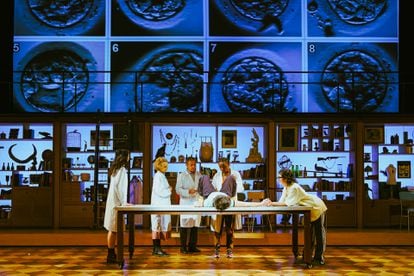
/cloudfront-eu-central-1.images.arcpublishing.com/prisa/HMWBQUP7WBCINF5UYMYS55EYF4.jpg)

